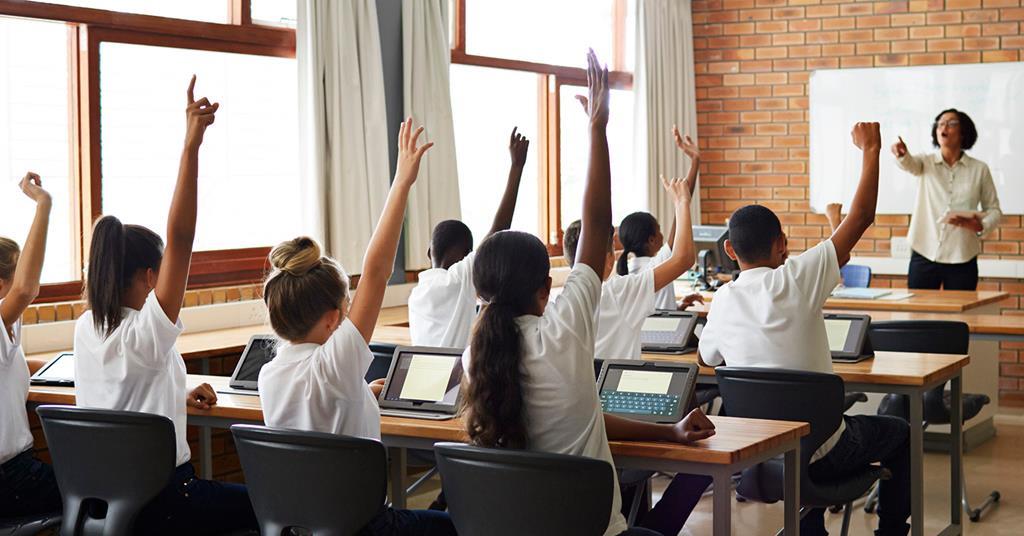Affordable Primary Science Tuition Singapore for All Learning Needs
Affordable Primary Science Tuition Singapore for All Learning Needs
Blog Article
Exploring the Various Training Strategies in Key Scientific Research Education And Learning Today
Inquiry-based learning, hands-on experiments, and the integration of technology are redefining just how teachers involve young minds. Additionally, joint methods and distinguished guideline are being utilized to provide to the varied needs of trainees, boosting both engagement and understanding.
Inquiry-Based Understanding
Inquiry-Based Understanding (IBL) is an instructional method that encourages students to discover clinical concepts through questioning, investigation, and hands-on experimentation. This technique highlights the duty of trainees as active participants in their discovering, advertising critical thinking and analytic abilities. By engaging with real-world inquiries, trainees end up being interested and motivated, which boosts their understanding of scientific concepts.
In IBL, teachers work as facilitators, directing pupils as they browse their queries instead of delivering information directly. This student-centered strategy enables distinction, accommodating different finding out rates and designs. Students create abilities in formulating theories, designing experiments, and evaluating data, which are important for scientific proficiency.
Furthermore, IBL fosters partnership amongst students, motivating them to share findings and concepts. This collective query advertises social abilities and a sense of area within the class. Additionally, the process of questions urges strength, as trainees find out to accept failure as a stepping stone toward understanding.
Hands-On Experiments
Hands-on experiments are a crucial element of reliable science education, complementing the principles of inquiry-based learning. These experiments enable trainees to engage directly with clinical principles, promoting a much deeper understanding with experiential learning. By adjusting materials and observing outcomes, young students can realize abstract concepts in substantial methods.
Such tasks promote critical thinking and analytic abilities, as trainees assume end results, conduct experiments, and assess outcomes. This procedure motivates them to ask inquiries, improve their understanding, and establish a clinical attitude. Hands-on experiments can be customized to varied learning styles, making certain that all pupils have the chance to involve meaningfully with the web content.
In addition, hands-on experiments often urge collaboration among peers, advertising synergy and communication skills. Operating in groups allows pupils to share concepts, review searchings for, and gain from one another, which enhances their total academic experience.
Incorporating hands-on experiments into the main science curriculum not just enriches the finding out setting yet additionally grows a long-lasting interest in scientific research. By actively taking part in their education, trainees are more most likely to establish an interest for scientific query that expands past the class.

Innovation Assimilation
Incorporating innovation into key science education has actually become significantly essential in promoting trainee involvement and boosting learning results. The use of digital tools, such as interactive simulations, digital labs, and academic software application, gives pupils with possibilities to explore scientific ideas in innovative means. These resources facilitate a much deeper understanding of intricate topics by permitting students to envision and control variables that would be not practical in a standard classroom setting.
Furthermore, modern technology combination urges personalized learning experiences. Pupils can progress at their very own rate, taking another look at tough principles with multimedia sources, which satisfy various discovering styles. This flexibility not only supports private development but likewise cultivates a sense of freedom in students.
In addition, innovation acts as a bridge to real-world scientific research, connecting trainees with current study and professional contributions. Accessibility to clinical journals and on-line databases expands trainees' viewpoints on scientific questions and cultivates crucial thinking abilities.
Collaborative Understanding
Collective learning plays an essential function in primary scientific research education and learning by promoting teamwork and interaction abilities among trainees. This strategy urges students to work together, share understanding, and take part in analytic, which improves their understanding of scientific concepts. By taking part in group tasks, trainees discover to express their concepts, pay attention to diverse viewpoints, and work out remedies, every one of which are crucial skills in both scholastic and real-world contexts.
Research study suggests that joint discovering can bring about boosted inspiration and interaction in science subjects, as students find enjoyment in shared experiences (primary science tuition Singapore). In addition, this technique prepares students for this post future collective endeavors, furnishing them with the skills essential for effective team effort in higher check over here education and learning and professional atmospheres. Inevitably, embracing collaborative knowing in main science education and learning can substantially enrich the learning experience and promote a deeper understanding of scientific questions
Differentiated Instruction

Distinguished instruction can manifest in various ways, such as varying the web content, procedures, or items of learning. Teachers might make use of tiered jobs that give differing levels of intricacy, permitting pupils to function at their corresponding preparedness degrees. Additionally, flexible grouping methods can promote collaboration among students with different abilities, cultivating peer discovering.
Evaluation plays a critical duty in this strategy, as it notifies instruction and aids teachers understand each pupil's special requirements. Formative evaluations, such as tests and observations, find more information can lead instructors in adjusting their strategies to improve learning outcomes. primary science tuition Singapore. Ultimately, by executing differentiated direction in main scientific research education, teachers can grow a more fair and reliable understanding environment, equipping all pupils to reach their full capacity in recognizing scientific phenomena
Final Thought
In recap, the varied teaching techniques in key science education, including inquiry-based discovering, hands-on experiments, modern technology integration, collective discovering, and set apart instruction, collectively contribute to an extra reliable learning environment. These methods promote essential thinking, problem-solving skills, and a deeper comprehension of clinical principles. By implementing these techniques, teachers can create appealing and encouraging class that deal with the different demands of students, eventually cultivating a long-lasting interest in scientific research and improving scholastic achievement.
Inquiry-Based Discovering (IBL) is an instructional method that urges pupils to explore clinical concepts via questioning, examination, and hands-on trial and error.Collaborative discovering plays an essential role in main scientific research education by cultivating team effort and interaction abilities amongst pupils.Research indicates that collaborative understanding can lead to raised motivation and involvement in science topics, as trainees find satisfaction in shared experiences.In cultivating an inclusive learning setting, separated instruction arises as a key approach to accommodate the varied needs and capacities of students in main science education and learning. Ultimately, by carrying out differentiated guideline in primary scientific research education and learning, teachers can grow a more fair and reliable learning atmosphere, encouraging all students to reach their complete possibility in understanding clinical sensations.
Report this page